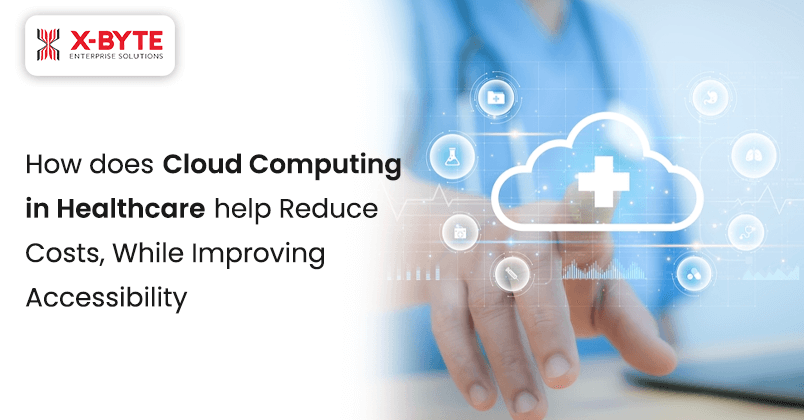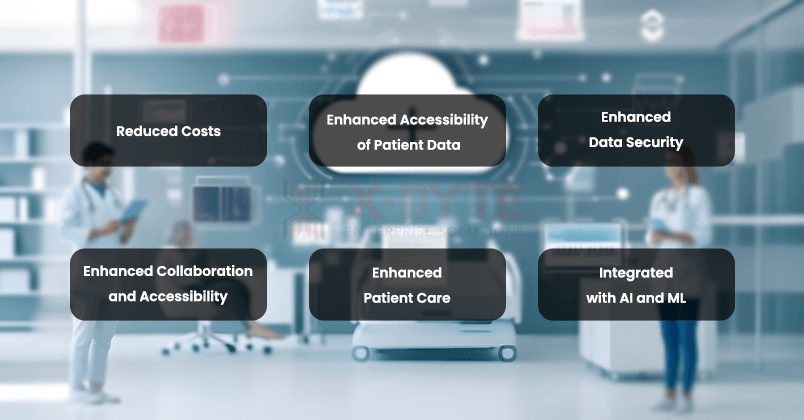-
solutinos
-
Hire
Frontend Developer
Backend Developer
-
NodeJS Developer
-
Java Developer
-
Django Developer
-
Spring Boot Developer
-
Python Developer
-
Golang Developer
-
Ruby on Rails Developer
-
Laravel Developer
-
.NET Developer
Technology
-
Flutter Developer
-
React Native Developer
-
Xamarin Developer
-
Kotlin Developer
-
Cross-Platform Developer
-
Swift Developer
-
MongoDB Developer
-
C Developer
-
Smart Contract Developers
Cloud
-
-
Services
Mobile Development
Web Development
- Work
-
Multi Services App
-
Food Delivery App
-
Grocery Delivery App
-
Taxi Cab Booking App
-
Multi Services App
-
OTT Platform APP
-
Social Media APP
-
Freelance Service App
-
Car Rental App
-
Medicine Delivery App
-
Liquor Delivery App
-
Sports Betting App
-
Online Coupon App
-
eLearning App
-
Logistics & Transportation App
-
Courier Delivery App
-
On-Demand Real Estate App
-
E-Wallet APP
-
Online Dating App
-
Handyman Services App
-
-
Process
-
Company

Quick Summary : Understand how cloud computing helps in transforming the healthcare operations. In this blog, we will understand the types, benefits, challenges and future of cloud computing solutions for healthcare segment. The advanced cloud computing help in automating the routine processes and boosting the service quality.
Cloud computing has experienced accelerated growth over recent years, with the aim of revolutionizing various sectors such as healthcare. Large datasets within hospitals and life sciences health care organizations are handled through cloud computing platforms. With advanced cloud computing, healthcare organizations can ensure scalability and flexibility to implement advanced technology.
Overview of Cloud Computing In Healthcare
Cloud computing in healthcare utilizes advanced platforms and remote systems using internet connectivity to manage, store, access, and manage comprehensive patient data. Modern cloud computing technology helps diverse healthcare service providers to ensure easy accessibility of data from any device and location. It provides enhanced accessibility, collaboration, and data efficiency. Cloud computing also ensures streamlined processes by implementing data analytics, remote patient monitoring, medical record keeping, and sharing. It can be done seamlessly with robust data security of sensitive patient data.
Types and Models of Cloud Computing in Healthcare
Various types of cloud computing models help transform healthcare organizations by establishing robust security and enhanced accessibility.
Deployment Models
- Public Cloud
- Private Cloud
- Hybrid cloud
The public cloud services can be accessed by any organization and offered by third-party service providers. The public clouds provide enhanced scalability and ease of use at a cost-effective pricing model. Healthcare organizations must access robust security protocols and compliances before implementing the public cloud.
This model is preferred as it provides enhanced security and compliance. The private cloud offers enhanced customization needs. An organization can have its private cloud infrastructure internally or hosted through third-party companies, including Microsoft and Amazon.
A hybrid cloud combines private and public clouds to fulfill specific business needs. Healthcare providers can store sensitive information on private data storage and utilize the public cloud for less sensitive data or handling the peak demand duration. This enhanced approach is customized to suit the specific organizational needs.
Service ModelDevOps
- Software as a Service (SaaS)
- Platform as a Service (PaaS)
- Infrastructure as a Service (IaaS)
SaaS delivers functional solutions over internet connectivity and eliminates the requirement of installation and maintenance on diverse local devices. SaaS provides electronic health record (EHR) systems alongside practice management software and telemedicine platforms in healthcare. Healthcare organizations gain adaptable data access, automated updates, and diminished IT maintenance expenses through SaaS.
With PaaS, developers acquire capabilities for application deployment while managing apps without handling infrastructure concerns. PaaS can be used in healthcare to create new solutions, integrate various systems, and deploy data-driven platforms. This model helps boost app development by reducing the complexity of infrastructure management.
Through IaaS, organizations gain access to virtual hardware servers, storage solutions, and networking infrastructure, which operates through the Internet. Healthcare organizations leverage IaaS platforms to construct expandable infrastructure systems, eliminating the need to purchase physical facilities. Organizations gain IT infrastructure management capabilities, cloud scalability, and cost reductions through this service delivery model.
Implement cloud system into your healthcare organization to streamline the routine processes!
Benefits of Cloud Computing in Healthcare

Cloud computing in the healthcare segment helps transform routine operations and ensures a smooth workflow. Below are the several benefits that help provide smooth processes while migrating to the cloud.
Reduced Costs
Cloud computing solutions are cost-effective and provide easy accessibility to diverse team members. On the other hand, cloud computing helps reduce the vast data management and database costs on-premise, which are required to set up the infrastructure.
Enhanced Accessibility of Patient Data
The FHIR ( Fast Healthcare Interoperability Resources) data standard and other healthcare data management security acts help ensure enhanced accessibility. This helps represent EMRs (electronic medical records) so that healthcare service providers can share the data with the parties when needed.
Enhanced Data Security
Paper medical records can become at high risk of breach and damage, which puts crucial patient records, safety, and privacy at risk. However, managing crucial data using EMRs reduces the data privacy risk but does not eliminate it. Many of the healthcare organizations manage their data with cloud data management solutions. The cloud follows data privacy and security standards to ensure data safety.
Enhanced Collaboration and Accessibility
With cloud data management, hospitals and healthcare organizations can gather patients’ data from various sources to analyze their health situation. It helps in real-time accessibility and provides treatment based on the current scenario.
Enhanced Patient Care
Cloud technologies help healthcare organizations and patients by providing required data on time. Patients can easily access their medical requirements, testing reports, and doctor’s views, which help manage their health.
Integrated with AI and ML
With the integration of advanced AI/ML algorithms, cloud platforms help in processing the datasets to optimize operational efficiency by streamlining the business processes. With the use of healthcare AI solutions, diverse medical data can be stored and managed on the secured cloud and suggesting the ideal medical treatments.
Challenges of Cloud Computing in Healthcare

Usually, healthcare organizations face diverse operational and technical challenges when migrating to cloud computing systems. Below are a few challenges of cloud computing in healthcare:
- Lack of experts
- Security Risks
- Privacy and Compliance
- Change Management
When migrating to a cloud, it is essential to have an in-depth understanding and technical expertise, which is not found in healthcare organizations. It is necessary to have a specific technology expert with the right skills to build safe infrastructure and ensure a smooth transition without hampering the workflow.
The primary benefit of the cloud is smooth data sharing, but it is challenging as it raises concerns about data breaches and loss. It is essential to maintain the security of data to ensure smooth workflow in the healthcare segment.
Maintaining the confidentiality and integrity of data is essential, but it is challenging to implement robust privacy and security measures. When not following compliance, healthcare organizations can be at risk of specific fines under the law.
With the technological expansion, migrating to the modern cloud platform is an effective way to boost business capabilities. To ensure a market-leading healthcare organization, it is essential to implement change management approaches into routine processes.

Get enhanced accessibility and boost service quality by migrating to modern cloud solutions!
Connect with Experts Connect with ExpertsFuture of Cloud Computing in Healthcare
Advanced Analytics and Artificial Intelligence (AI)
Cloud computing is essential for advanced analytics and AI in the healthcare industry. This helps analyze and process large datasets to determine disease patterns, predict outbreaks, and personalized treatment plans based on the patient’s condition and medical history.
Telemedicine Growth
Telemedicine transformed healthcare through significant growth after the pandemic caused permanent expansion of its practices throughout the healthcare field. The power of cloud computing enhances telemedicine solutions by delivering customizable offerings with excellent video communication features, as well as automated appointment scheduling and wearable medical device connectivity capabilities.
Support for Genomics and Precision Medicine
Analyzing the genomic data involves massive computational power and storage requirements. With the use of cloud computing, it becomes easy to process this large amount of data, leading to expansion in precision medicine and targeted therapies.
Enhanced Security and Compliance
As cybersecurity threats intensify, cloud service providers allocate resources to develop sophisticated security systems. Through advanced cloud solutions, healthcare facilities gain superior encryption features, artificial intelligence-based threat analysis, and strict healthcare regulation compliance, including HIPAA and GDPR. This helps in ensuring patient data remains secure.
Conclusion
Healthcare providers who implement technological solutions maintain leadership in innovative patient-focused healthcare services that respond to the changing needs of their industry. Cloud computing works to revolutionize healthcare through system automation of repetitive workflows. Healthcare organizations and hospitals can use this transformation to improve efficiency, accessibility, and patient outcomes.
Frequently Asked Questions
-
What is cloud computing in healthcare?
Cloud computing stands as an integral component of medical service delivery. The healthcare sector relies on internet-based services to handle patient records and medical data while efficiently managing healthcare-related assets through secure distant storage methods.
-
How does cloud computing reduce costs in
healthcare?
- Lower IT Infrastructure Costs
- Scalability
- Streamlined Operations
- Reduced Maintenance Expenses
-
How does cloud computing improve accessibility in healthcare?
Remote Access: Healthcare professionals gain secure remote access to medical data and patient records through any internet-connected device.
Telemedicine Support: Cloud platform technology connects patients with doctor consults so they can receive medical care from home.
Data Sharing: Cloud platforms enable shared medical data exchange between healthcare providers and specialists, resulting in enhanced care facility coordination that produces better patient results.
Global Reach: Remote and underserved patient populations can access advanced healthcare through cloud-based applications operating remotely.
-
What are the key benefits of cloud computing for patients?
- Faster Access to Care
- Improved Continuity of Care
- Cost Savings
- Personalized Treatment
-
Is cloud computing secure for healthcare data?
Cloud computing guarantees protection against unauthorized access to medical healthcare data. Reputable cloud service providers establish data protection through encryption methods, multi-factor authentication, and HIPAA compliance protocols to safeguard healthcare information (and patient privacy).
